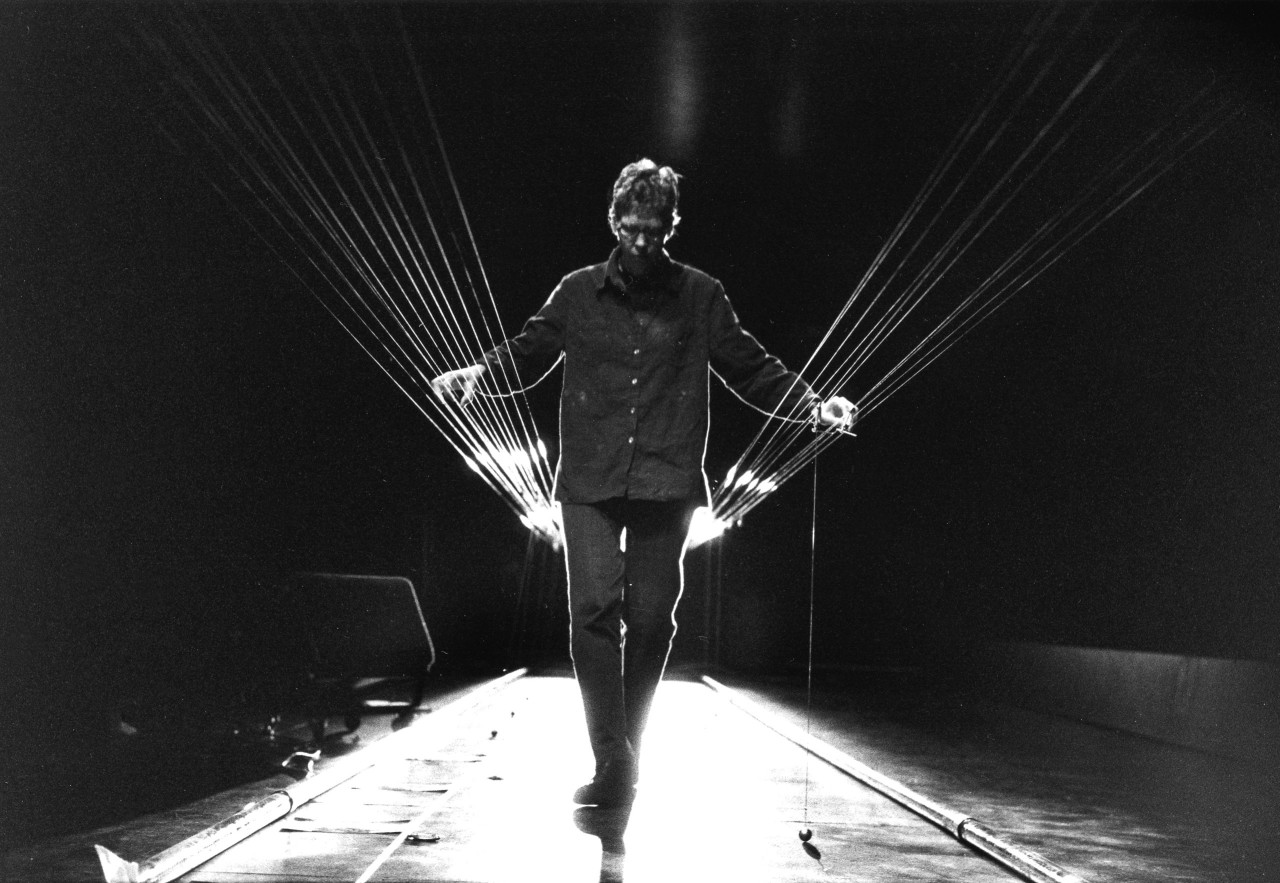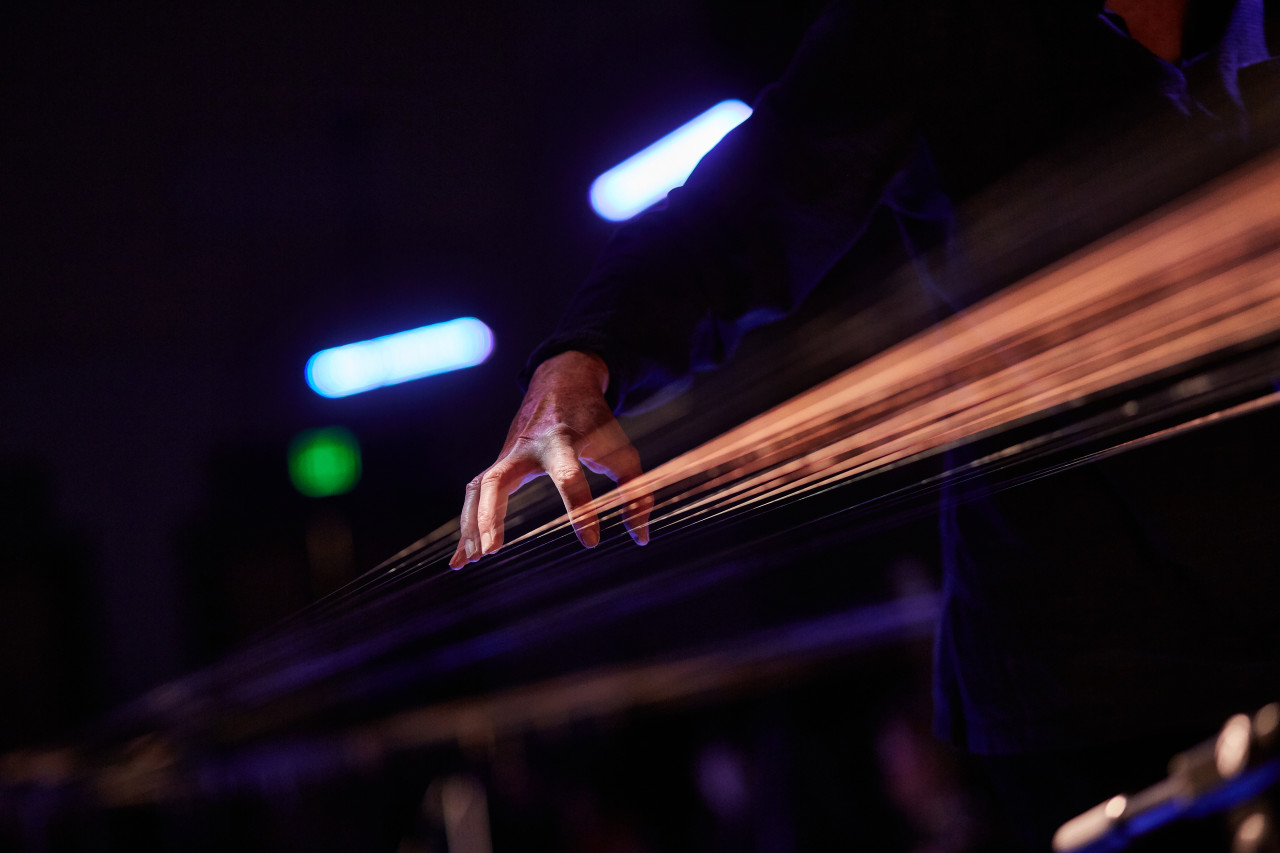Concert
May 3, 2024, 9pm
While playing the long string instrument, I have liked to think of my body in miniature, moving forward and back almost like the pendulum swing in hypnosis.
—Ellen Fullman
Artists Space is pleased to present two weeks of legendary sound artist and composer Ellen Fullman's Long String Instrument, with performances on Friday evenings April 26 and May 3 and a continuous installation on view.

Installation on view:
Wednesday, April 24 - Friday, May 3
Additional concerts:
Friday, April 26, 7pm
Friday, May 3, 7pm
For the past 40 years, Ellen Fullman (b. Memphis, 1957) has dedicated herself to a singular artistic pursuit: the Long String Instrument. This remarkable installation comprises dozens of tuned strings, each stretching fifty feet or more, effectively turning architectural space into a site-specific musical instrument. Through her compositions, collaborations, and improvisations, Fullman immerses herself and her audience within this vast resonating body, delving into the unique acoustics of each environment.
Since the early 1980s, Fullman has been refining the Long String Instrument, a process that typically involves several days of meticulous installation and tuning to adapt to a specific space. Moving amidst the strings, she plays the instrument by "bowing" with rosin-coated fingertips. Her project encompasses the study of Just Intonation tuning theory, a compositional practice centered on string harmonics, experiments with various wire alloys and gauges, and the design and fabrication of wooden resonators.
Fullman has developed a distinct notation system to choreograph her movements, guiding her exploration of sonic events at specific nodal point locations along the instrument's length. As she navigates this multi-tiered sonic landscape, she utilizes her entire body to amplify the resulting artifacts. In Fullman's own words: the “sound” itself of my instrument is my composition. I shaped the timbre through instrument design and performance techniques. I am not satisfied to leave it at that, however. My intention is to craft compositional forms that emerge out of the material of the sound itself.
